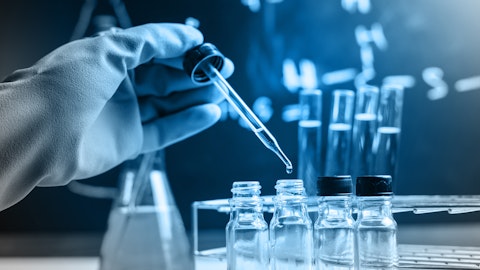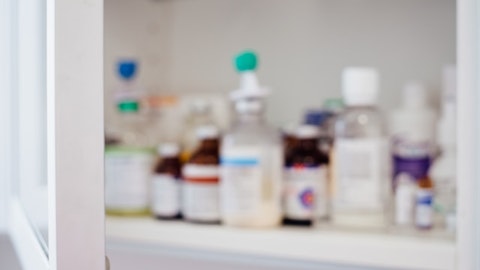We focus all the time on our partners, making sure we’re focused on customer service, we’re focused on future needs and that deep collaborative scientific dialogue that they’re looking for. And of course, you investors, as well. That’s obviously superior. Business execution is extremely important to us, and we’ll continue to be committed to that going forward. And then we’re also committed to leading with integrity and responsibility in the communities in which we operate. So with that, I’m going to introduce Todd who just a little bit ago got back from BIO-Europe. He’s looking fresh and ready to go. So Todd, welcome. Thanks.
Todd Pettingill: Good morning, everybody. Great to be here with you. Today, I get to speak about a good topic, the value that we’re creating for our partners and what’s driving that. As Matt mentioned, we’ve had a really, a good run over the past several years of increasing our partner base, especially in the last 24 months, which is especially encouraging in light of the recent market headwinds. So as we think what is driving that? There are several factors that jump out of this. But really, we have had at a good run to improve and increase the platform visibility, both through our business development efforts but also through our partners as they’ve pushed antibodies into the clinic and also gotten them approved. We’ve also put, as Matt mentioned, we’ve put a lot of investment into our business development and marketing presence, both increasing the size of the team, but also spending a lot more time at conferences.
And that’s really been helpful as we’ve been able to have cutting-edge science that’s backed this up and made the message clear. Finally, we’re able to be creative in how we license. We don’t take a one-size-fits-all approach with our partners. We have a range of different contract types and different things that we can work with to find a deal that works for all of our partners. So with that, we’re able to attract a diverse set of partners. We’re now starting to define our partner base as different areas, each one has a unique characteristic. First, we have our discovery technology access partners. These are partners who have full access to the platform for both current and potential programs, but also they can develop and commercialize antibody or OmniAb-derived antibody.
And that’s the majority of our partner base. Next, we have the commercial partners. And these are the partners who have geographic or therapy area rights to commercial and development stage OmniAb-derived antibodies. They’re developing and they’re commercializing. Finally, we have our academic partner licenses. These are working with academics and institutes and these licenses are designed for revenue share. We provide the discovery technology platform, and the understanding is that they’re going to use this to do proprietary research and spin out assets for development and commercial entities. So what’s driving the interest from our partners in using the platform? Well, this is our platform. So we — and this is our tech stack. We like to create or to define it into three separate buckets, if you will.
First, create. We help people create a large diverse set of repertoire of high-quality antibodies to select from. We have a wide range of transgenic and other animals that we consider biological intelligence, and that drives how we create antibodies for our partners. Next, we screen. We help our partners screen through millions of potential antibodies to find the right therapeutic. We have a high throughput automated version, and then we also have a manual version that also dig deep into the repertoire. Finally, we deliver. We help people characterize and select and optimize the right antibody. We do that through traditional wet lab work. And we also have recently incorporated in silico tools to expand and build upon the assets that we provide to our partners.
So going back to the create section. It’s driven by biological intelligence. So what is biological intelligence? We define biological intelligence as using Mother Nature to do what it does best, to generate antibodies in vivo. So we believe that in vivo generated antibodies are superior because they’re generated through an iterative process that selects for antibodies and then increases the specificity and helps select for those with superior developability profile. On top of that, our suite of transgenic animals allows us to provide antibodies with fully human variable regions. So not only are these strong antibody candidates, but they don’t need to be humanized. They’re ready. They’ve already passed that key step. So that’s what we call biological intelligence.


